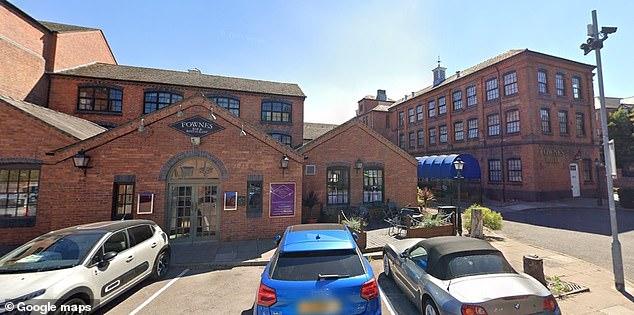Worcester has found itself at the center of a heated debate after it emerged that the Fownes Hotel, a city centre property, is unlawfully housing over 100 asylum seekers.
The issue has intensified because the city council recently granted planning permission to expand the hotel, despite evidence that it’s already being used as a hostel without approval.
Unlawful Housing Sparks Questions
More than 100 asylum seekers are currently staying at the Fownes Hotel, which has not received permission to operate as anything other than a hotel.
Planning rules require explicit approval for a “material change of use,” such as converting a hotel into a hostel.
Yet the council has allowed the Home Office arrangement to continue without enforcement, claiming it is “considering where public interest lies.”
Planning Permission Granted Amid Controversy
Last December, the Fownes Hotel applied to convert conference and storage spaces into 20 additional guest rooms and add a four-storey external fire escape.
The application described the property’s existing use as a hotel and conference facility, ignoring that an internal report a month earlier had confirmed 124 asylum seekers were already staying there under a Home Office contract.
The council approved the expansion in February, raising concerns that the new rooms could effectively increase hostel capacity without proper permission.
Local Politicians Voice Frustration
Alan Amos, a Worcester city councillor representing Reform UK, called the hotel’s use as asylum accommodation “very divisive.”
He told authorities they must take immediate action, noting his 18 years on the planning committee.
“If something doesn’t have planning permission, then enforcement action is required,” Amos said.
He added that the council’s approval of extra rooms likely supports hostel use for which there is no permission.
Public Protests and Tensions
Tensions surrounding the hotel have not been limited to council meetings.
Last month, hundreds of anti-immigration protesters and counter-protesters gathered outside the Fownes Hotel, resulting in seven arrests.
One individual, Keil Mansfield, faces charges of assaulting a police officer and is due in court in September.
Comparisons With Other Councils
The situation at Fownes Hotel mirrors legal battles elsewhere in the UK.
Epping Forest District Council recently obtained an interim High Court injunction to stop the Bell Hotel in Epping from housing migrants after violent protests.
Though the Court of Appeal later overturned the ban, the case highlighted how planning breaches linked to asylum housing can lead to public unrest and safety concerns.
Council Response Remains Cautious
Worcester City Council has not disclosed when asylum seekers first arrived at Fownes or how many remain.
In a statement, the council said it has “kept a watching brief” and considered public interest, potential impacts on the site, and the surrounding area.
On the controversial approval for extra rooms, it said the planning application clearly listed the building as a hotel, with additional rooms intended for the same use.
Government and National Perspective
A Government spokesperson emphasized ongoing efforts to reduce reliance on hotels for asylum accommodation.
From more than 400 hotels in use during the summer of 2023, costing nearly £9 million a day, the number has dropped to fewer than 210.
The aim is to close all by the end of the current Parliament, with community partners involved to address local concerns.
Legal Actions Across the UK
Several councils are now considering legal steps to prevent unlawful asylum housing.
West Northamptonshire Council, run by Reform UK, is issuing Planning Contravention Notices to three asylum hotels.
In other cases, authorities have argued that hotels being used as long-term accommodation for asylum seekers may constitute a change of use, triggering planning rules and public safety considerations.
What’s Next for Fownes Hotel?
With local protests, unresolved planning issues, and scrutiny from both councillors and the Government, the future of Fownes Hotel’s use remains uncertain.
Questions remain about whether enforcement action will be taken, how the additional rooms will be used, and whether national guidelines on asylum housing will finally be enforced.
